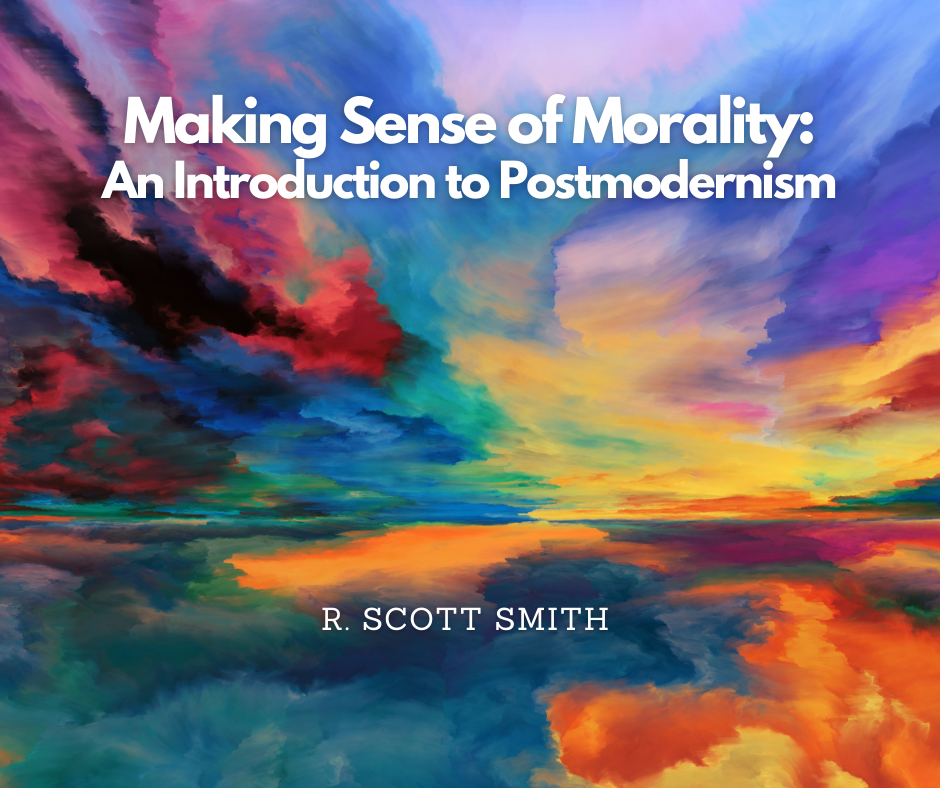Making Sense of Morality: Hume’s Ethics
/Editor’s note: R. Scott Smith has graciously allowed us to republish his series, “Making Sense of Morality.” You can find the original post here.
Introduction
David Hume (d. 1776) also was heavily influenced by mechanical atomism and nominalism. So, no two things are identical; everything is particular. He also was a major British empiricist, such that all knowledge comes by the five senses. Moreover, all that we experience are particular sensory impressions. It is not the case that in daily life we experience objects like tables and cars themselves. Rather, from those sense impressions the mind projects those objects due to custom.
Since we cannot sense empirically anything immaterial, Hume’s views lead to a radical skepticism. We could not know God or the human soul is real. Yet, we also cannot sense the mind, so perhaps we should wonder what it is that does the projecting. Nor can we know custom by the five senses, so we could doubt its reality too.
Hume’s Ethics
Applied to morals, they cannot be something immaterial, like many previous ancients and medievals thought, lest we not be able to know them. Additionally, for him, morals are not subject to reason. Reason deals with matters of facts and relations of ideas, he held, but reason cannot tell us what is moral or move us to action. Instead, the prospects of pleasure and pain move us to action, while, in a very move very unlike Aristotle, reason is powerless to do so.
Yet, there is a subordinate role for reason. It can help us figure how to accomplish what we want. Thus, reason is slave of the passions.
There is a major consequence of this view. Consider the sentence, “murder is wrong.” Sentences are empirically knowable. However, many have argued that a proposition is the cognitive content (or meaning) of a sentence. In that case, murder is wrong is a proposition. Now, suppose we deleted that sentence; would we thereby destroy its meaning and that proposition, too? It does not seem so. Moreover, the very same proposition can be expressed in many languages, but that is a characteristic of an immaterial universal, like Plato and Aristotle thought. Such things have an essence, and each universal is one thing, and yet be present in many concrete instances (here, sentences).
This means that for Hume, while sentences are subjects of knowledge, propositions, including moral principles, are not. In these ways, Hume severed facts from morals. That move has been called the fact-value split, which has been with us in the west ever since.
Key for Hume’s morality is the moral sense, or sentiment or feeling. That seems to make an action moral or not. Yet, each feeling is particular and highly individualistic. Also, his ethics seems to be like emotivism, such that moral statements (“murder is wrong”) would be just emotive utterances (e.g., “ugh, murder!”). But, if so, they cannot be true or false, for they are non-cognitive. They are just expressions of feelings.
With this highly individualistic emphasis, Hume’s ethics could seem to lead to anarchy. Yet, he also was quite high on keeping the status quo. To do that, he also held a high place for social order and utility.
Assessment
What then should we make of his ethics, particularly in terms of preserving our core morals? Clearly, the idea that morality is just a matter of each person’s own feelings is very much alive now, especially in the U.S. Still, by gutting morals of their cognitive content, he also removed their normativity. So, murder’s and rape’s wrongness, and justice’s and love’s goodness, would be undermined. All we would have would be expressions of feelings. But those are just descriptive, not normative.
Moreover, on his view, why should a sociopath be prevented from acting on his or her passions? Without any cognitive content to morals, we lose all ability to know what actions we should, or shouldn’t, do. Yet, from our core morals, we know that that is not so. Further, his appeal to social order seems ad hoc, given the rest of his theory.
Next, we will look at Immanuel Kant’s ethics.
For Further Reading
Hume, An Enquiry Concerning the Principles of Morals, and A Treatise of Human Nature R. Scott Smith, In Search of Moral Knowledge, ch. 4
R. Scott Smith is a Christian philosopher and apologist, with special interests in ethics, knowledge, and seeing the body of Christ live in the fullness of the Spirit and truth.




















